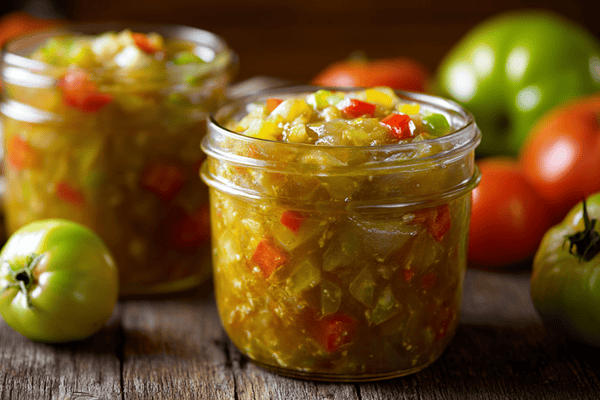
A chef’s knife is the workhorse when it comes to kitchen utensils, they cover a variety of cutting functions from mincing, dicing, slicing, and chopping and it’s fair to say that many people will have a premium quality chef’s knife as the prized possession in their knife collection.
For such a valuable item, it’s common for people to look for the best way to maintain the quality of their chef’s knife and a question that is frequently asked is whether or not you can put your chef’s knife in the dishwasher to clean it.
You should never put your chef knives into a dishwasher to clean them as this can cause rusting, blunting/dullness of the blade, discoloration, damage to the knife, or other cutlery/utensils and in some cases even chip or break the knife blade. A chef’s knife should instead be washed by hand in warm, soapy water and then dried immediately to properly maintain the condition of your knife.
You might be quite surprised to hear that a chef’s knife shouldn’t be used in a dishwasher but there are several reasons why this can be harmful to the condition of your chef’s knife.
Below, we are going to outline some of these reasons as well as letting you know the correct way to clean your chef knives.
Table of content
- Can You Put Chef Knives in the Dishwasher
- Why Is a Dishwasher Bad for Your Chef's Knife
- Does washing a knife in the dishwasher make it dull?
- How to Correctly Clean Your Chef Knives
- Why should you wash knives separately?
- Why do knives rust in the dishwasher?
- Does dishwashing knives dull them?
- Is there any dishwasher safe kitchen knives?
- FAQ
- Conclusion
Can You Put Chef Knives in the Dishwasher

We are not going to say that you can’t do anything with your own property, the worst-case scenario for most people using a dishwasher to clean their chef’s knife is that it could cause damage to the dishwasher or other items in the machine if it happens to become misplaced during a cleaning cycle.
What we will say however is that it’s highly advised that you shouldn’t put your chef’s knife in the dishwasher to clean it. Many professional chefs and knife enthusiasts have weighed in on this topic and the resounding conclusion is that you should never put a chef’s knife in the dishwasher.
Good knives can often be expensive items that need to be regularly maintained and treated with care to get a good lifespan out of them and a dishwasher can quite quickly ruin your knife when used as a cleaning method. Therefore, just because you can put a chef’s knife in the dishwasher, it doesn’t mean that you should be doing it.
Why Is a Dishwasher Bad for Your Chef's Knife
If you have a relatively cheap stainless steel knife or a commercial-grade kitchen knife then you’ll find that some knives are manufactured to make them dishwasher friendly however these are very specific sets of knives.
There’s a small number of reasons for this which combine to seriously risk the quality of your premium grade knife.
Cause Rusting & Warping - The hot, moist, and humid temperature is not an ideal environment to leave your high-quality knives in and this sort of environment can easily cause rusting or damage to the blade or handle.
This is more true if you have a chef’s knife that has a carbon steel blade that can be prone to rust if subjected to a moist environment and this is also not ideal for chef’s knives that use a traditional wooden handle.
Abrasive Detergent - The most common reason you’ll find people citing as to why you shouldn’t put a chef’s knife in the dishwasher is because of the abrasive detergent that can be very harmful to the blade's edge.
The PH and compound makeup for a lot of detergents can be particularly damaging to the edge of a high quality, sharp knife. These compounds can (and will) cause corrosion to the knife’s edge over time and start to dull the blade.
Certain chemicals will also cause rust to your knives and this ties in with the above point meaning that the combination of high heat and a moist environment with potentially harmful detergents can both rust, corrode and dull the knife’s edge of high-quality chef knives.
Damaged During a Cycle - Perhaps the biggest detriment to your knives in a dishwasher are the cycles themselves. Dishwashers fire high powered streams of water onto the cutlery and utensils to break down food, residue, and stains.
It’s a very good system for cleaning items however it’s damaging to your high-quality knives for a few reasons. Firstly, the high powered jets cause items to move around during a cycle (particularly those in a basket) and this movement will cause a collision.
This isn’t an issue for your basic cutlery however with finely sharpened knives, you’ll quickly find that this repeated collision dulls the blade almost instantly and can, on occasion, even cause chips to the edge.
Does washing a knife in the dishwasher make it dull?
One of the downsides to putting knives in your dishwasher is that they can get damaged by contact with other objects.
The water jets shooting out from every direction could knock a knife into any glassware or bowls, which would cause it to chip and dull its blade.
There’s also detergent residue on dishes which will damage both stainless steel and ceramic blades over time- especially if you use bleach products or have hard water!
How to Correctly Clean Your Chef Knives
There are a surprising amount of factors that can lead to incorrect cleaning of a chef’s knife which can ultimately be detrimental to the condition and longevity of your knife.
It sounds like such a simple task and you might think we are over exaggerating slightly here, but correctly cleaning a chef’s knife is a key task that should not be overlooked.
Some of the negative factors that we covered above that can ruin the quality of your knife if used in a dishwasher can also be applied to other forms of cleaning.
Leaving your knives to soak in hot water with detergent can have a similar effect to putting them in the dishwasher and leaves them susceptible to rust, corrosion, or dulling of the edge.
The correct way to clean a chef’s knife according to Viola Wüsthof is by hand immediately after use or kept to one side to clean later.
She states that they should never be left in a sink to soak as they can then come into contact with pots and pans leading to a dulled edge (this is on top of our point about metal damage that can occur when doing this).
Therefore to correctly clean a chef’s knife and maintain its quality and longevity you should follow these simple knife cleaning steps:
- Hand-wash your knives individually in hot soapy water (never boiling water as this can cause expansion and shrinking of the metal and potentially warp the knife)
- Rinse and dry by hand, air drying should rarely be used as water left sitting on a blade can eventually lead to rusting regardless of the metal used
- Store the knife immediately after drying on a knife block or similar
These are some very simple steps to follow however they will go a very long way to ensuring your knife is kept in top condition.
Subjecting a chef’s knife to unfavourable conditions or putting it into contact with other utensils can easily run the risk of causing a dull blade, this might seem trivial but most chef knives (particularly of Japanese tradition like a Santoku knife) will have a very sharp edge and this makes them highly susceptible to damage if they are not handled with care.
Why should you wash knives separately?
You should always wash knives separately from the rest of your dishware to avoid accidents. You can store them in a separate container or drawer and keep utensils like spoons, forks, and spatulas away so that you don't end up cutting yourself as well when washing dishes.
It is always safer to wash sharp knives on their own so that it doesn't get scratched or chipped. You should also hand-wash your knives in hot water and soap, but don’t forget to dry them off afterward with a towel before storing them!
Why do knives rust in the dishwasher?
Most knives in the dishwasher will be submerged into water and sitting around a lot of moisture, so it's no surprise that most are going to rust. The humidity only makes matters worse with all this extra wetness clinging onto your knife blades which can lead to corrosion.
Not only are the knives washed in water but they will also be sitting on a wet surface once your dishwasher has finished unless you empty it immediately. So it's best to avoid a wet, humid environment that could potentially cause problems for your knives.
The dishwasher is also likely going to have detergent in the water as well which will be tough on some knife blades and they can get dull or rusty quicker than normal if you wash them with these harsh chemicals.
It might not seem like much but over time this can lead to more needlessly spending money on new knives when you are trying to save money by washing dishes! So why take the risk? Wash those sharpies separately so they last longer and stay sharper too!
Does dishwashing knives dull them?
Does dishwashing knives dull them? The simple answer is yes, it can. But not always and not necessarily to a noticeable degree. The main reason dishwashing can dull knives is because of the chemicals in dishwashing liquid and water. These chemicals can slowly erode away at the metal on your knife, gradually making it less sharp over time.Are there any dishwasher safe kitchen knives?
Yes, there are dishwasher safe kitchen knives! Some are even made to be put into the dishwasher. However, it is always best to hand-wash your knives to avoid any potential damage that could occur from the harsh chemicals in detergent or from being banged around in the dishwasher. Even if the knife is dishwasher safe, it is still best to hand-wash it to avoid any issues.FAQ
Q- Can any knives go in the dishwasher?
A- It is generally not a good idea to put knives in the dishwasher, as the harsh detergents and high temperatures can damage the blade and handle. Additionally, the blades can become dull more quickly if they are repeatedly exposed to the heat and water in a dishwasher. It is best to wash knives by hand using warm water and mild dish soap. This will help to preserve the sharpness and condition of the blade.
Q- Do knives lose sharpness in the dishwasher?
A- Yes, knives can lose their sharpness if they are repeatedly washed in a dishwasher. The heat and water of a dishwasher can damage the blade, making it dull and less effective for cutting. Additionally, the harsh detergents used in dishwashers can also corrode the blade and affect its sharpness. It is best to wash knives by hand using warm water and mild dish soap to preserve their sharpness and longevity.
Q- What should never go in the dishwasher?
A- There are several items that should never be put in a dishwasher.
These include:
- Knives: As mentioned earlier, the heat and water of a dishwasher can damage the blade of a knife, making it dull and less effective for cutting. It is best to wash knives by hand.
- Cast iron cookware: Cast iron pans and skillets should never be put in a dishwasher, as the harsh detergents can strip away the pan's seasoning and cause rust. Instead, wash cast iron cookware by hand with warm water and a mild dish soap.
- Wooden utensils: Wooden spoons, cutting boards, and other utensils can become damaged in a dishwasher. The heat and water can cause the wood to warp and split, and the detergents can strip away the wood's natural oils. It is best to wash wooden utensils by hand using warm water and a mild dish soap.
- Non-stick cookware: Non-stick pans and other cookware should not be put in a dishwasher, as the heat and detergents can damage the non-stick coating. This can cause the coating to flake off and potentially contaminate your food. It is best to wash non-stick cookware by hand using warm water and a mild dish soap.
- Delicate or hand-painted items: Delicate or hand-painted dishes, glasses, and other items can become damaged in a dishwasher. The heat and detergents can cause the paint to fade or chip, and the high-pressure water can cause delicate items to break or shatter. It is best to wash these items by hand using warm water and a mild dish soap.
Conclusion
Are knives dishwasher safe ? While it might seem like the dishwasher is a quick and convenient way to clean your chef knives, you will likely do more harm than good to your knives.You could take all the precautions necessary to minimise the risks of dish-washing the knives but we firmly believe that for the time and effort it takes to simply wash the knives by hand, you’ll not only maintain the quality of your knife for as long as possible but also save time and effort that you’d need to spend sharpening your knives after the blade's edge has inevitably become dull from being used in the dishwasher.


